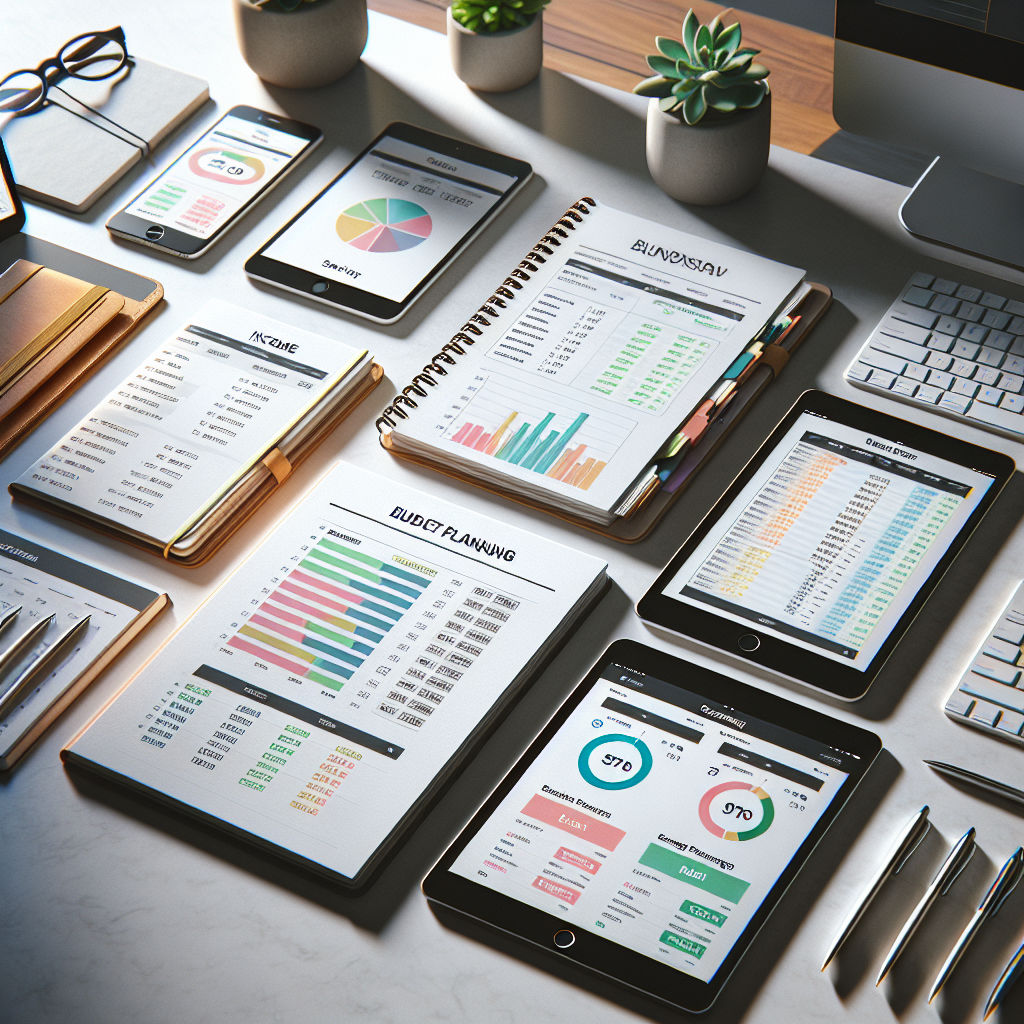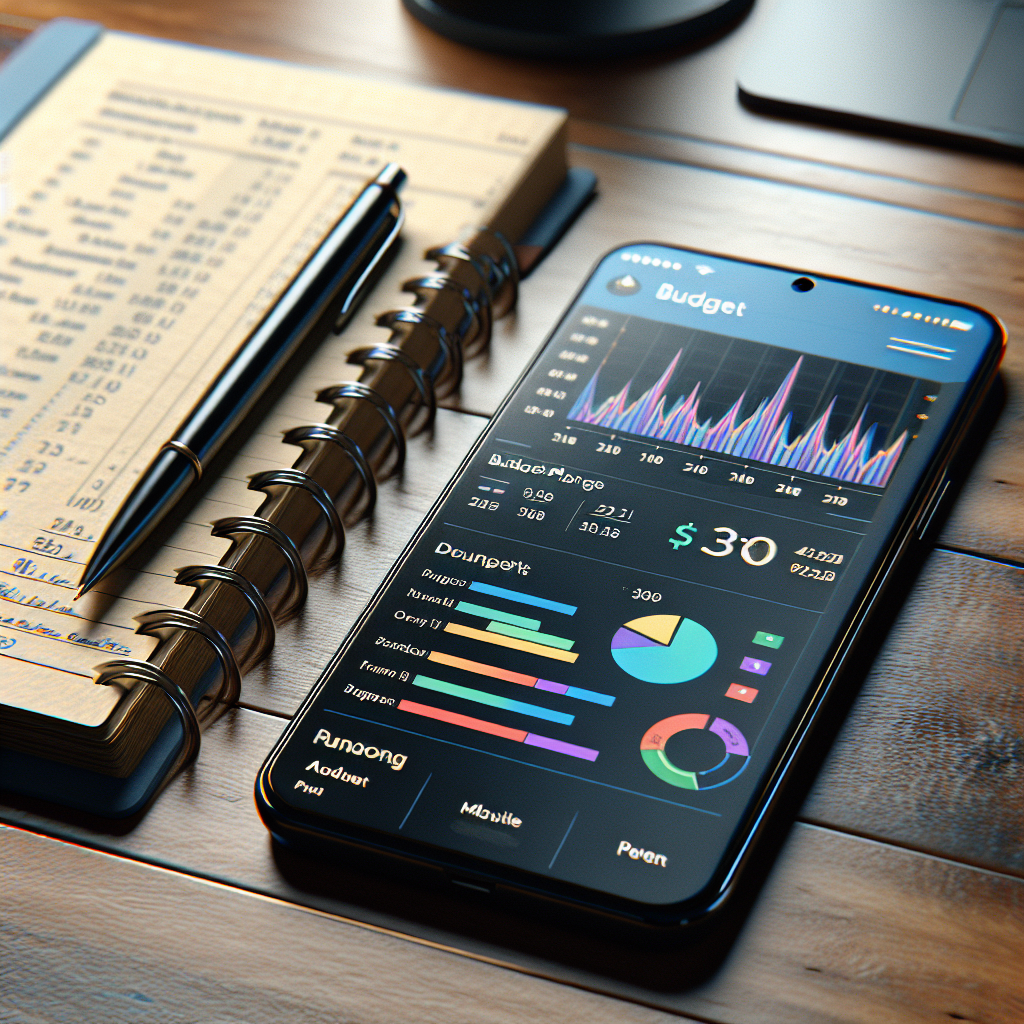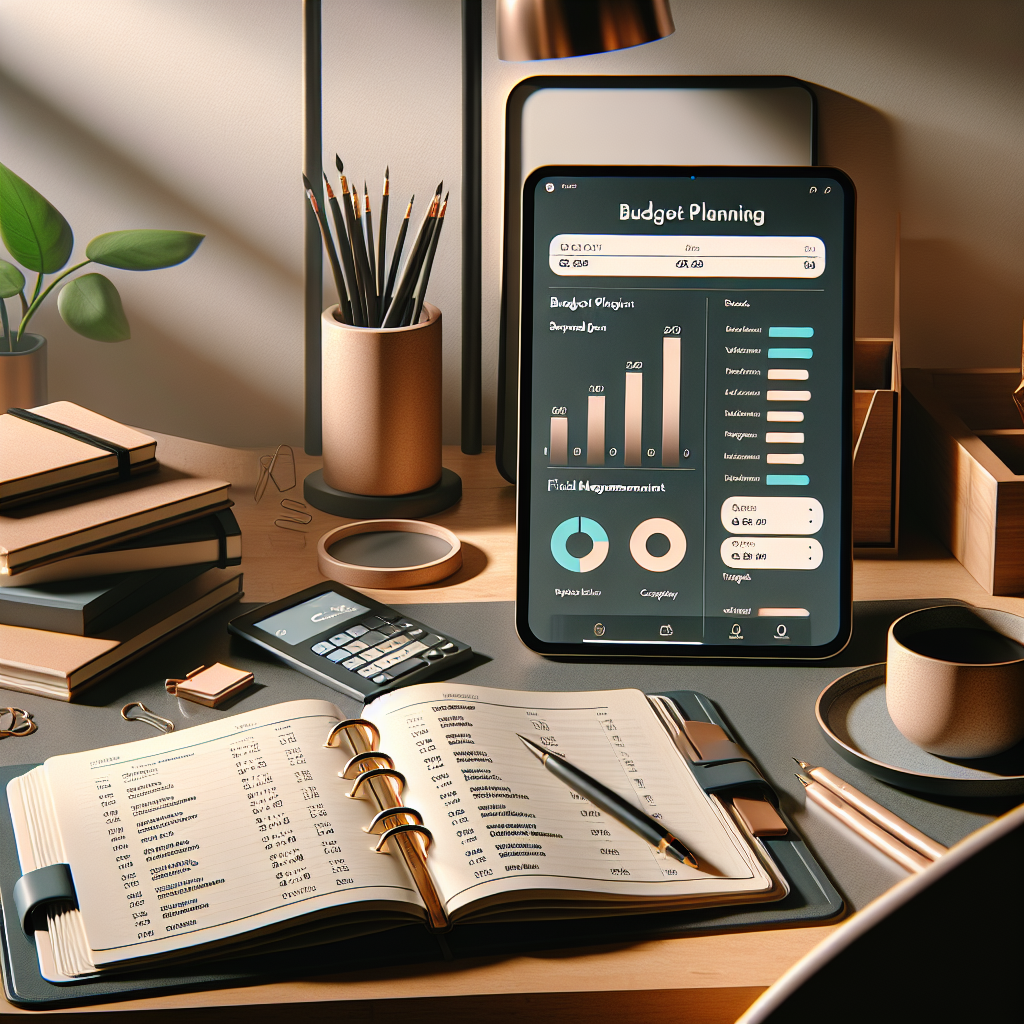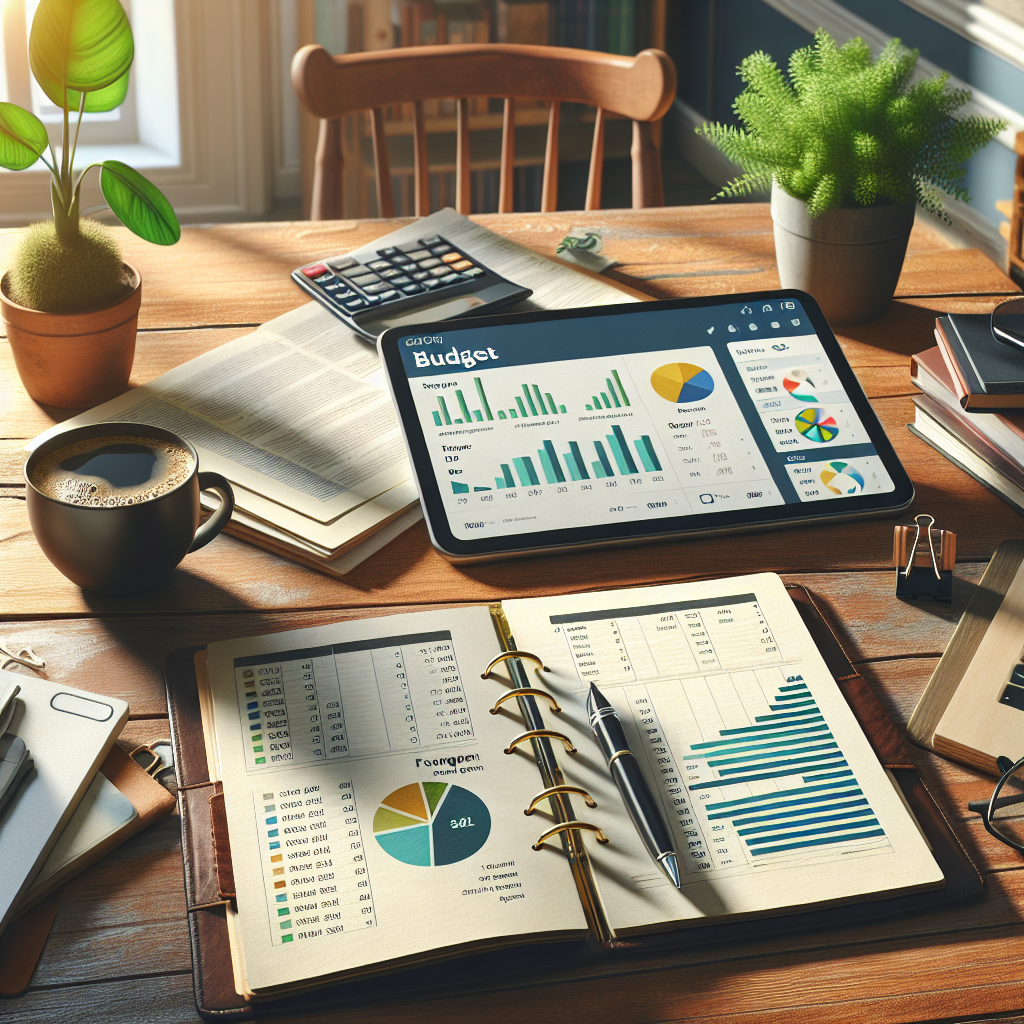Discover the best expense tracking apps for effective personal and business budgeting. Streamline your financial management today.
Managing personal and business finances can often feel like navigating a labyrinth. That’s where budget planners come into play. They are essential tools designed to help individuals and small businesses keep track of their income, expenses, and savings. A good budget planner provides a *structured approach* to managing finances, ensuring that every dollar is accounted for and that financial goals are within reach.
Budget planners come in various formats, including traditional paper-based planners and modern digital apps. While paper planners offer a tactile experience, digital planners like Vala’s savings management platform add a layer of *convenience and automation* that can significantly enhance your financial planning efforts. These tools can automatically categorize expenses, generate insightful reports, and even provide personalized recommendations to help you save more effectively.
Ready to take control of your finances and experience effortless savings? Download Vala today and start managing your budget with ease!
Key Features Of A Good Budget Planner
A good budget planner is more than just a ledger for tracking expenses; it is a *comprehensive tool* designed to provide a holistic view of your financial health. Here are some key features to look for:
- Expense Tracking: Accurate expense tracking is crucial. A good budget planner should allow you to categorize expenses, set spending limits, and monitor your spending habits.
- Income Management: It’s essential to keep track of all sources of income. A robust budget planner should provide a clear overview of your earnings, helping you identify trends and plan accordingly.
- Goal Setting: Whether you’re saving for a vacation, a new car, or an emergency fund, a good budget planner should help you set and track financial goals, offering insights and reminders to keep you on track.
- Financial Reports: Insightful reports and analytics can help you understand your financial behavior better. Look for a budget planner that offers detailed reports on spending, saving, and income patterns.
- Customization: Everyone’s financial situation is unique. A good budget planner should offer customizable categories and features to tailor the experience to your specific needs.
- Integration with Financial Accounts: To streamline the process, some budget planners allow integration with bank accounts and credit cards, providing real-time updates and reducing manual entry.
- User-Friendly Interface: Lastly, a good budget planner should have an intuitive, easy-to-use interface that makes financial management straightforward and stress-free.
Incorporating these features can transform your budgeting experience, making it not only more effective but also more engaging.
Benefits Of Using A Budget Planner

Utilizing a budget planner offers a multitude of benefits that can significantly improve your financial well-being. Here are some of the key advantages:
- Enhanced Financial Awareness: By consistently tracking your income and expenses, you gain a clearer understanding of where your money is going. This heightened awareness allows you to make informed decisions about your spending and saving habits.
- Improved Savings: A budget planner helps you identify areas where you can cut back on unnecessary expenses, thereby increasing your savings. With goal-setting features, you can also allocate funds towards specific savings targets, making it easier to achieve your financial objectives.
- Debt Reduction: Managing debt becomes more manageable with a budget planner. It allows you to allocate funds towards debt repayment strategically, helping you pay off loans and credit card balances more efficiently.
- Reduced Financial Stress: Knowing exactly where your money is going and having a plan in place can significantly reduce financial stress. A budget planner gives you control over your finances, leading to greater peace of mind.
- Better Spending Habits: Tracking your expenses helps you identify and eliminate bad spending habits. Over time, you can develop more disciplined financial behaviors that support your long-term financial goals.
- Preparation for Emergencies: A good budget planner encourages the creation of an emergency fund. This safety net ensures you are better prepared for unexpected expenses, such as medical emergencies or urgent repairs.
- Long-Term Financial Planning: Beyond day-to-day budgeting, a budget planner assists with long-term financial planning. Whether you’re saving for retirement, a child’s education, or a major purchase, having a clear plan helps you stay focused and organized.
The benefits of using a budget planner are extensive, offering a structured approach to managing your finances and achieving your financial goals.
How To Choose The Right Budget Planner

Choosing the right budget planner is crucial to effectively manage your finances. Here are some factors to consider when selecting a budget planner:
- Identify Your Needs: Determine what you want to achieve with a budget planner. Are you looking to track daily expenses, save for specific goals, or manage debt? Understanding your financial priorities will help you choose a planner that aligns with your objectives.
- User-Friendliness: Opt for a budget planner that is easy to use and navigate. A user-friendly interface ensures that you can quickly input data and access financial insights without hassle. Look for planners with intuitive designs and clear instructions.
- Customization Options: A good budget planner should offer customization options to suit your unique financial situation. Whether it’s personalized categories, goal-setting features, or adjustable budgets, the ability to tailor the planner to your needs is essential.
- Integration Capabilities: Check if the budget planner integrates with your bank accounts, credit cards, and other financial platforms. Seamless integration allows for automatic data import, reducing the need for manual entry and ensuring accuracy.
- Security Features: Since you’ll be inputting sensitive financial information, ensure the budget planner has robust security measures. Look for features such as data encryption, secure login processes, and compliance with data protection regulations.
- Reporting and Analysis: Effective budget planners provide detailed reports and analysis tools. These features help you track your progress, identify spending patterns, and make data-driven financial decisions. Look for planners that offer visual reports, such as charts and graphs.
- Cost: Budget planners come in various price ranges, from free apps to premium subscriptions. Evaluate the cost against the features offered to ensure you’re getting good value for your money. Remember, a higher price doesn’t always equate to better functionality.
- Customer Support: Reliable customer support is essential, especially if you encounter issues or have questions. Choose a budget planner that offers comprehensive support, whether through FAQs, live chat, or email assistance.
By considering these factors, you can select a budget planner that fits your financial needs and helps you achieve your goals efficiently.
Top Budget Planner Tools And Apps

With a plethora of budget planner tools and apps available, it can be overwhelming to choose the right one. Here are some of the top budget planner tools and apps that can help you manage your finances effectively:
- Mint: Mint is a popular free budgeting tool that offers a comprehensive overview of your finances. It automatically tracks your expenses, categorizes them, and provides insights into your spending patterns. Mint’s user-friendly interface and robust reporting features make it a favorite among users.
- YNAB (You Need A Budget): YNAB is a paid budgeting app that focuses on giving every dollar a job. It emphasizes proactive budgeting and helps users allocate funds for various expenses before they are incurred. YNAB offers educational resources and an active community to support users in their budgeting journey.
- Personal Capital: Personal Capital is a versatile financial management tool that combines budgeting with investment tracking. It provides detailed insights into your spending, savings, and investment performance. Personal Capital’s wealth management features make it ideal for individuals looking to integrate budgeting with long-term financial planning.
- Goodbudget: Goodbudget is an envelope budgeting app that helps users allocate funds to different spending categories. It promotes disciplined spending and saving by encouraging users to stick to their budget limits. Goodbudget is available in both free and paid versions, offering flexibility for different needs.
- PocketGuard: PocketGuard simplifies budgeting by showing you how much disposable income you have after accounting for bills, goals, and necessities. Its “In My Pocket” feature helps users avoid overspending and stay within their budget. PocketGuard’s intuitive interface makes it easy to track expenses and manage finances on the go.
- Wally: Wally is a budgeting app that provides a holistic view of your financial health. It allows users to track expenses, set savings goals, and monitor income streams. Wally’s sleek design and comprehensive features make it a powerful tool for managing personal finances.
These budget planner tools and apps offer a range of features to suit different financial needs. Whether you’re looking for detailed financial insights, proactive budgeting, or simple expense tracking, there’s a tool or app that can help you achieve your financial goals.
Tips For Effective Budget Planning

Effective budget planning is essential for achieving financial stability and reaching your financial goals. Here are some practical tips to help you create and maintain an efficient budget:
- Set Clear Goals: Establish specific, measurable, achievable, relevant, and time-bound (SMART) goals. Whether it’s saving for a vacation, paying off debt, or building an emergency fund, having clear objectives will keep you motivated and focused.
- Track Your Spending: Monitor your expenses meticulously. Use budgeting apps or tools to categorize your spending and identify areas where you can cut back. Understanding your spending habits is crucial for making informed financial decisions.
- Create a Realistic Budget: Base your budget on your actual income and expenses. Include all sources of income and account for fixed and variable expenses. Ensure that your budget is realistic and sustainable to avoid frustration and burnout.
- Prioritize Savings: Treat savings as a non-negotiable expense. Automate transfers to your savings account to ensure consistency. Aim to save at least 20% of your income, but adjust based on your financial situation and goals.
- Review and Adjust Regularly: Your financial situation may change over time, so it’s important to review and adjust your budget periodically. Make necessary changes to accommodate new expenses, income fluctuations, or changes in your financial goals.
- Limit Discretionary Spending: Identify discretionary expenses that can be reduced or eliminated. Limit dining out, impulse purchases, and other non-essential spending to free up more money for savings and essential expenses.
- Stay Disciplined: Sticking to your budget requires discipline and commitment. Avoid temptations that can derail your financial plan and remind yourself of your long-term goals to stay motivated.
By following these tips, you can create a budget that not only helps you manage your finances but also aligns with your financial aspirations. Effective budget planning is a continuous process that requires regular monitoring and adjustments.
Ready to take control of your finances and experience effortless savings? Download Vala today and start managing your budget with ease!

